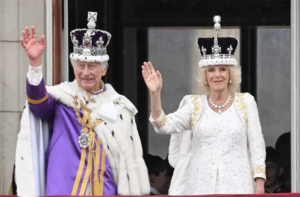Amir Khan banned for two years for doping violation
BRITISH boxer Amir Khan has been banned for two years after an anti-doping test revealed the presence of a banned substance following his fight against Kell Brook in February 2022.
The former light-welterweight world champion tested positive for ostarine.
Khan, who retired from boxing in May, accepted he broke anti-doping rules but said it was not intentional.
An independent tribunal accepted that argument, ruling out “deliberate or reckless conduct” by the 36-year-old.
“I’ve never cheated,” Khan told Sky Sports News. “But I’ve got a two-year ban now, which is quite strange and funny because I’m already retired anyway.

Kell Brook (left) beat Amir Khan in sixth round to settle a bitter rivalry between the two fighters at Manchester Arena in February 2022.
“There’s no comeback planned at all. But I’ve never cheated and I never will. That’s just not something I would do.”
Khan says he has “no idea” how the banned substance ended up in his system.
“I have to take some sort of responsibility. End of the day it’s been found in my system. I can honestly say this is something I would never ever do.
“It was such a tiny amount, it was no benefit at all. I should have maybe taken more precautions.
“I don’t want to remembered for something like this,” he said. “That’ll hurt me.”
The UK Anti-Doping (Ukad) website states ostarine is a drug designed to have similar effects to testosterone.
In October, British sprinter CJ Ujah was banned for 22 months after he tested positive for two banned substances, including ostarine, at the Tokyo Olympics.
Ukad rejected Khan’s defence that the ostarine was transmitted by a tainted supplement or human contact, but also decided the dose was too small to be intentional or give any performance advantage.
“This case serves as a reminder that Ukad will diligently pursue anti-doping rule violations in order to protect clean sport,” Ukad chief executive Jane Rumble said.
“Strict liability means athletes are ultimately responsible for what they ingest and for the presence of any prohibited substances in a sample.”
Boxxer, which promoted the Khan-Brook event, said it was “disappointed” to learn about Khan’s ban via social media on Tuesday, adding it is “vehemently against any use of any illegal or performance-enhancing substances taken by athletes”.
Promoter Ben Shalom says Boxxer was not informed of the positive drugs test and that the British Boxing Board of Control (BBBofC) was only told on Monday.
The ban from all sport is deemed to have begun on 6 April 2022 and expires on 5 April 2024.
Fellow Briton Conor Benn failed two voluntary drug tests for female fertility drug clomifene before his cancelled bout with Chris Eubank Jr in October.
Benn was allowed back into the World Boxing Council rankings after it ruled his failed drug test was not intentional and and could have been caused by a “highly elevated consumption” of eggs.
However, he remains under investigation by Ukad and the BBBofC, and is unable to fight in the United Kingdom as he does not have a boxing licence.
Khan, who won a silver medal at the 2004 Athens Olympics as a 17-year-old, turned professional in 2005.
In 2009 he became world champion, defeating Andreas Kotelnik at Manchester Arena for the WBA light-welterweight title. His win over Zab Judah in 2011 earned him the IBF belt and unified champion status. Khan then lost the titles in his next fight to Lamont Peterson.
He was beaten by Brook via a sixth-round knockout in what proved to be his final professional bout.
Khan retired from the sport three months later, finishing his career with 34 professional wins and six losses, having turned professional in 2005.
Outside the ring, he has maintained a strong public profile through his appearances in Australia-based reality gameshow I’m a Celebrity… Get Me Out of Here! and his own BBC reality TV show, Meet the Khans: Big in Bolton.He is due to make a second appearance on I’m a Celebrity this month, this time based in South Africa.(BBC Sport)







